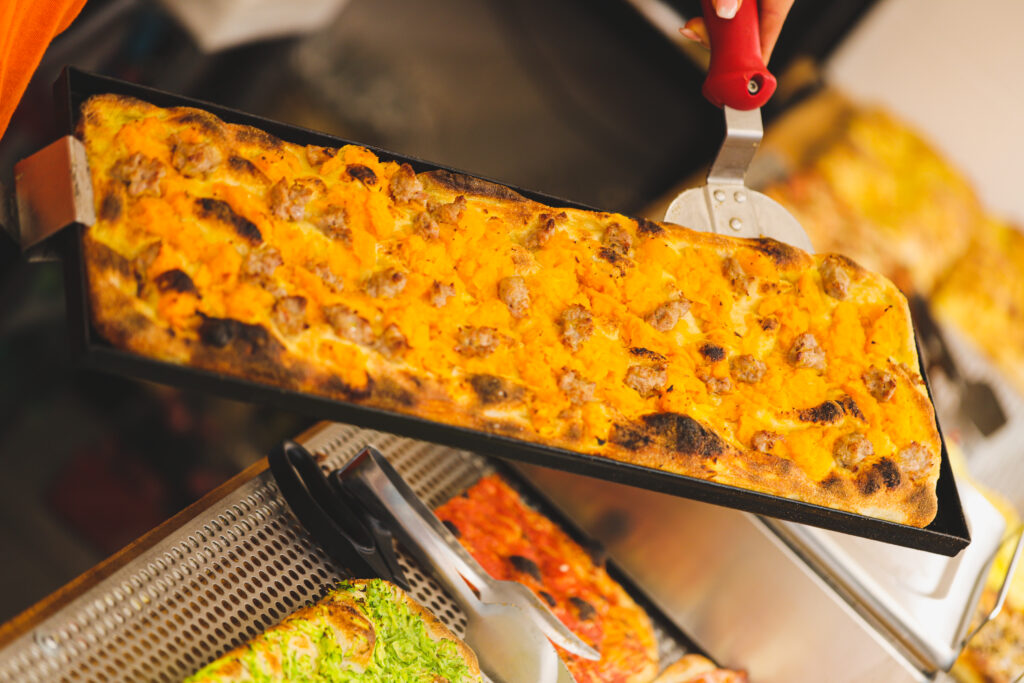Pinsa in its present form is the brainchild of entrepreneur, Corrado Di Marco. He has reinvented and commercialised an old recipe. Long ago, however, this was a recuperation dish of the peasant population outside the walls of ancient Rome. Cereals and coarse flour that could not be sold on the markets became the basis for a dough of crisp, light focaccia. The pinsa as we know it today is derived from this. The name comes from the Latin pinsère and means crushing and stretching. This refers to the dough being stretched without a rolling pin into an elongated and oval shape. The toppings are very varied and give the pinsa the appearance of a pizza.
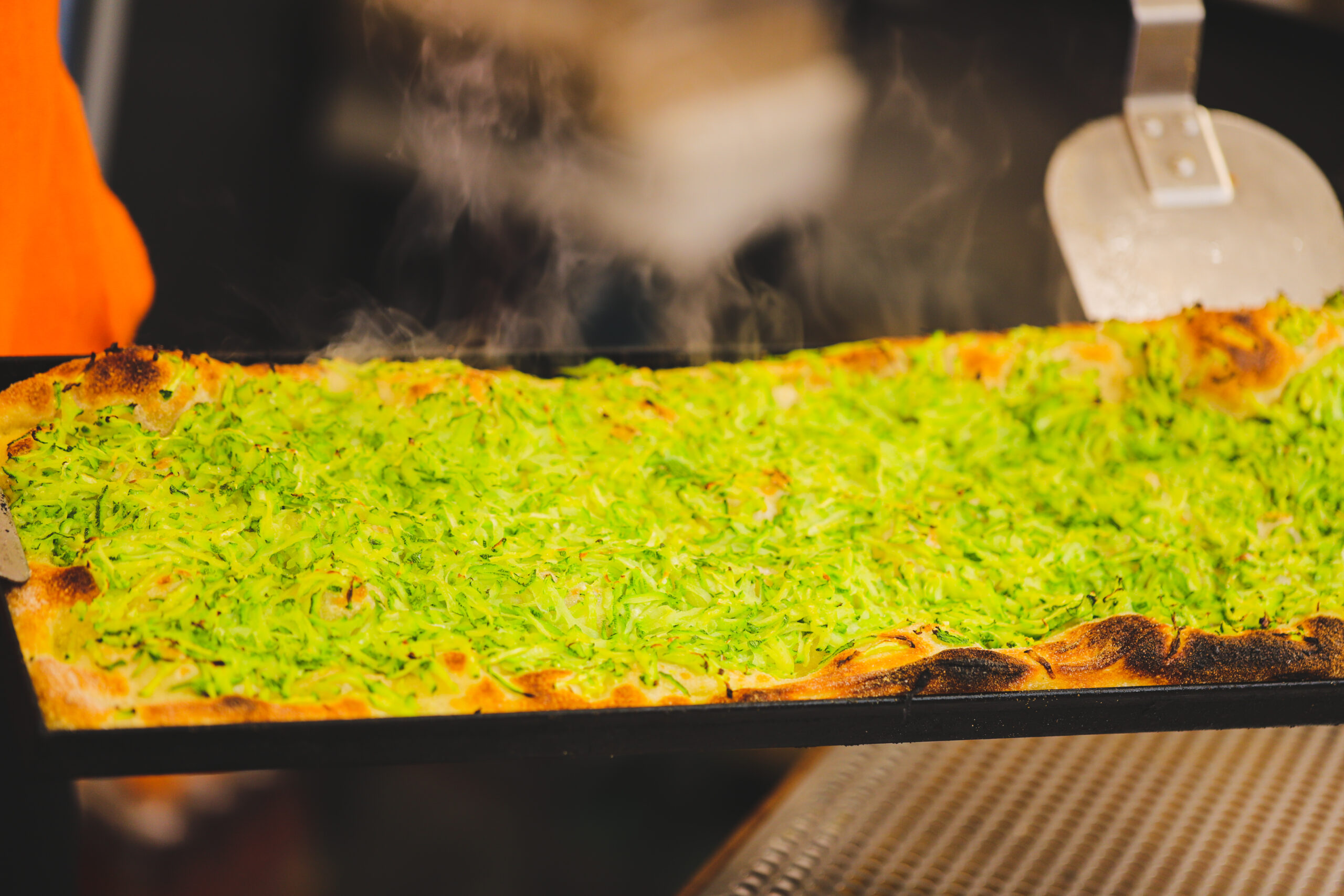
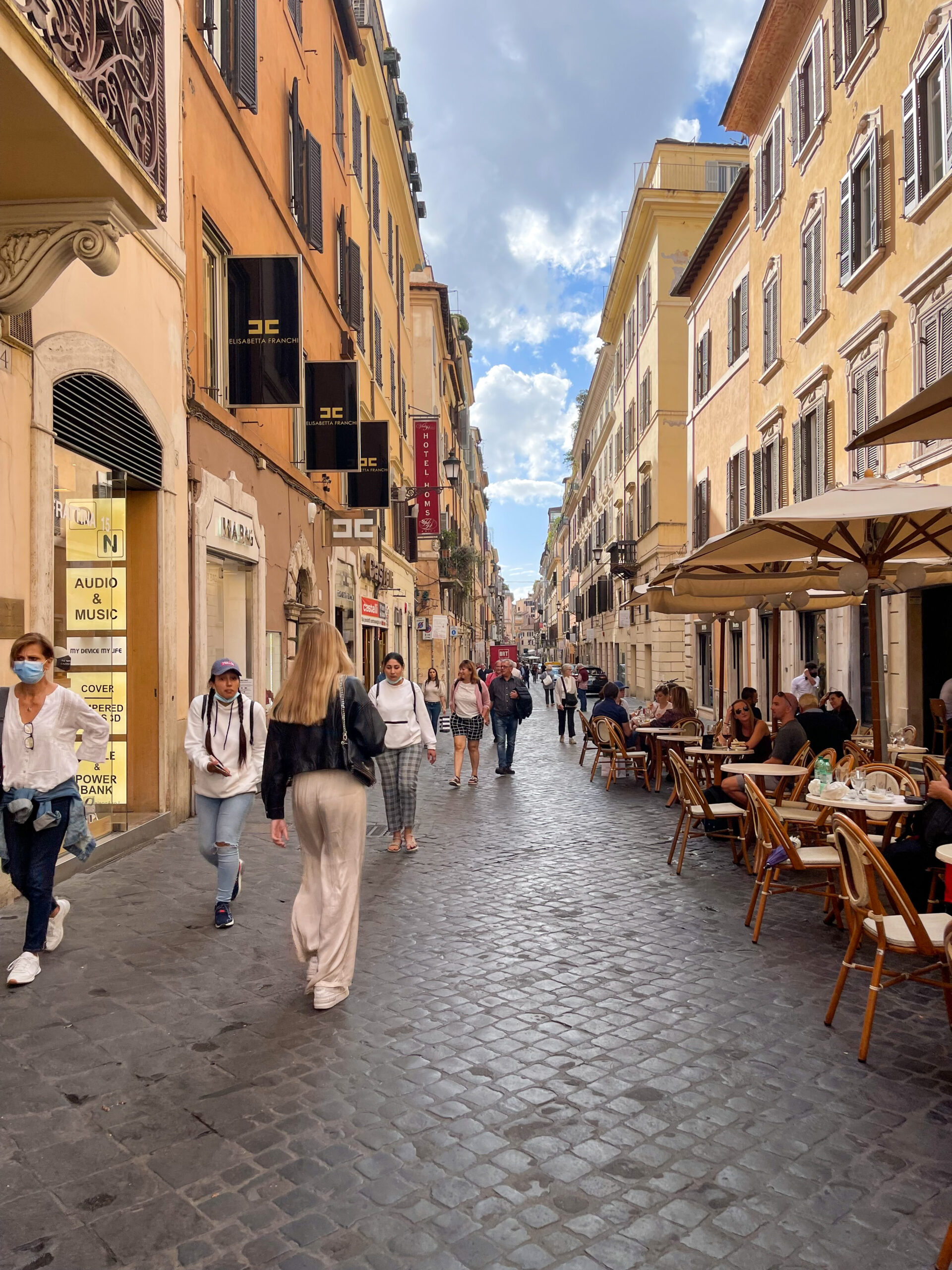
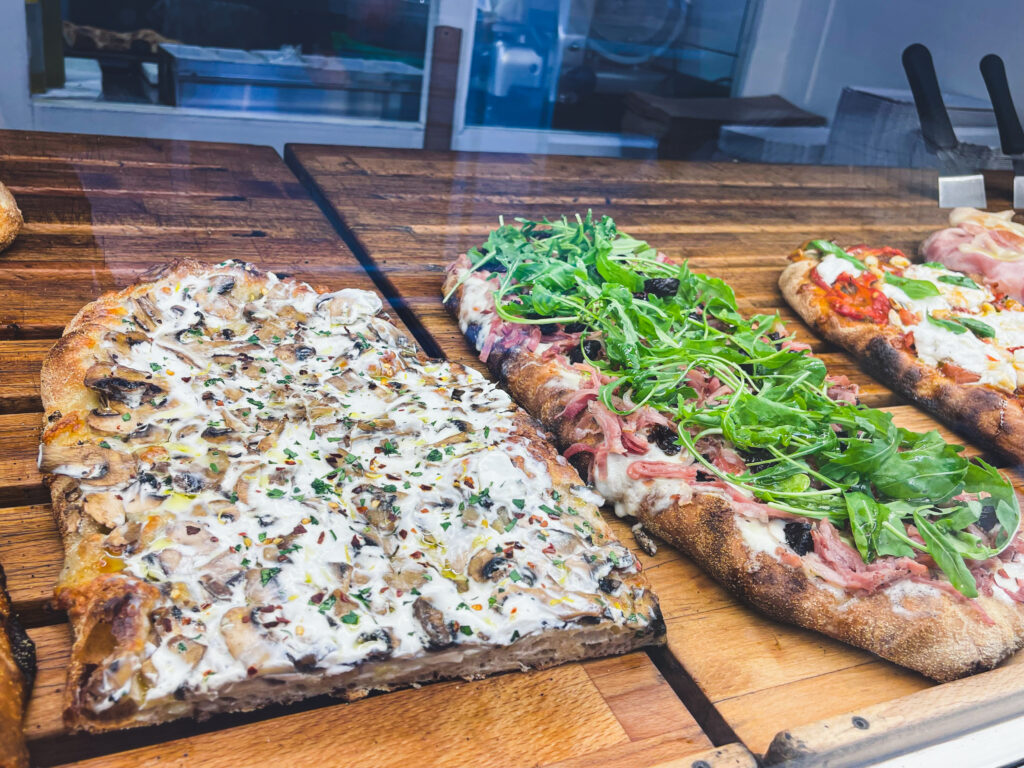
A revolution in the land of pizza
Corrado’s mix contains wheat, rice and soya flour, but the exact ratio is secret. Compared to classic pizza, pinsa dough contains much more water (80% hydration), no fats or sugars and less yeast. The result is a more digestible product with fewer calories.


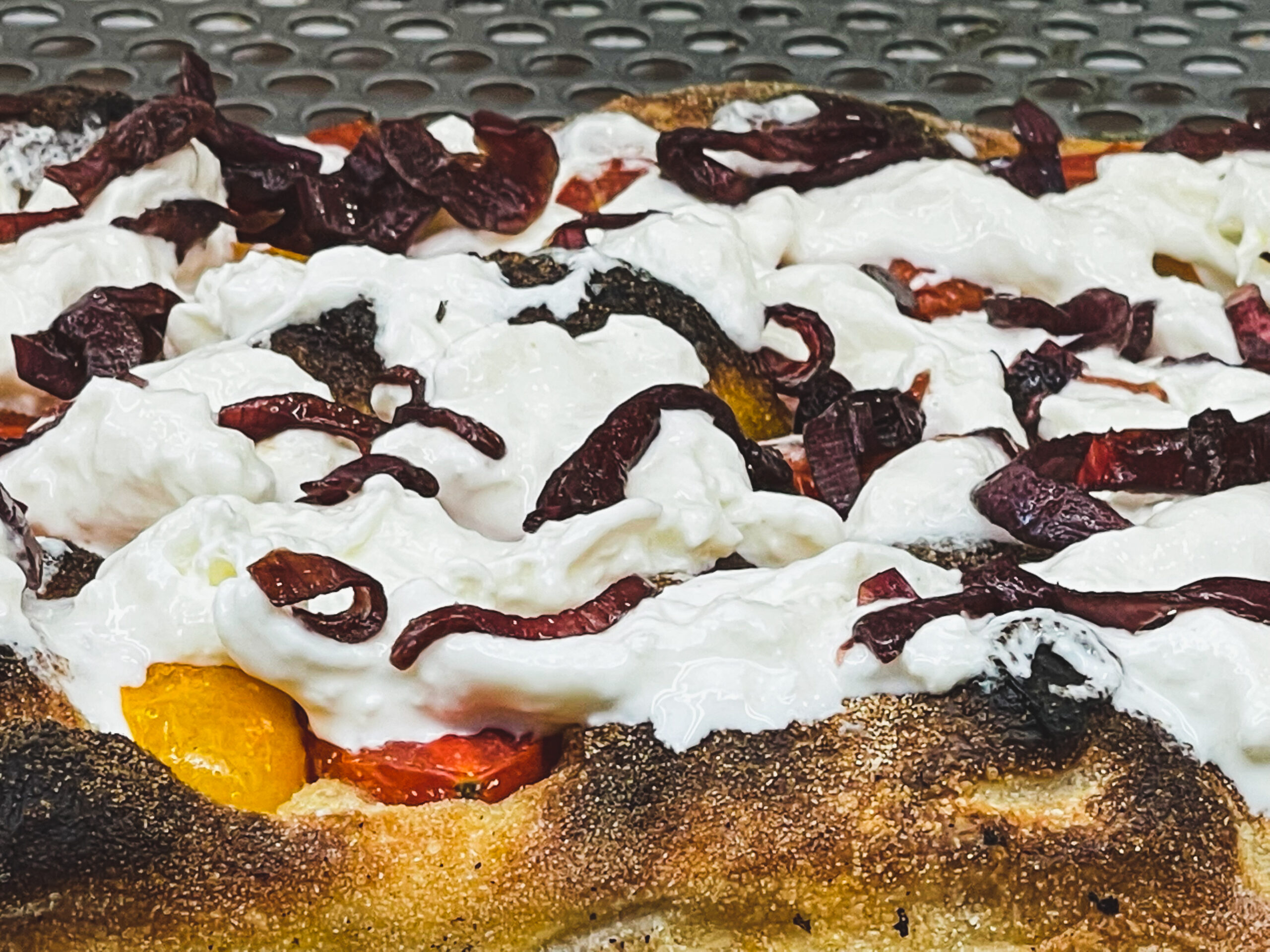
Some Pinsa addresses in Rome
Pinsamisù, Via Calpurnio Fiamma, 83
La Pratolina, Via degli Scipioni, 248
Pinsa’mpo, Via dei Gracchi, 7
La Locomotiva, Via Monti Tiburtini 157
Pizza Spartaco, Viale Spartaco, 73
Deus Pinsa, Via Selinunte 35
Domus Pnsa Alberone, Via Francesco Valesio 15
Habemus Pinsa, Via Umbria, 19
Pinsa e buoi dei…, Viale Carlo Felice 51/53
L’albero cocciuto, Viale Appio Claudio 221
m, Via dei Castani 173
La Pratolina, Via degli Scipioni 248
Pinsere, Via Flavia 98

